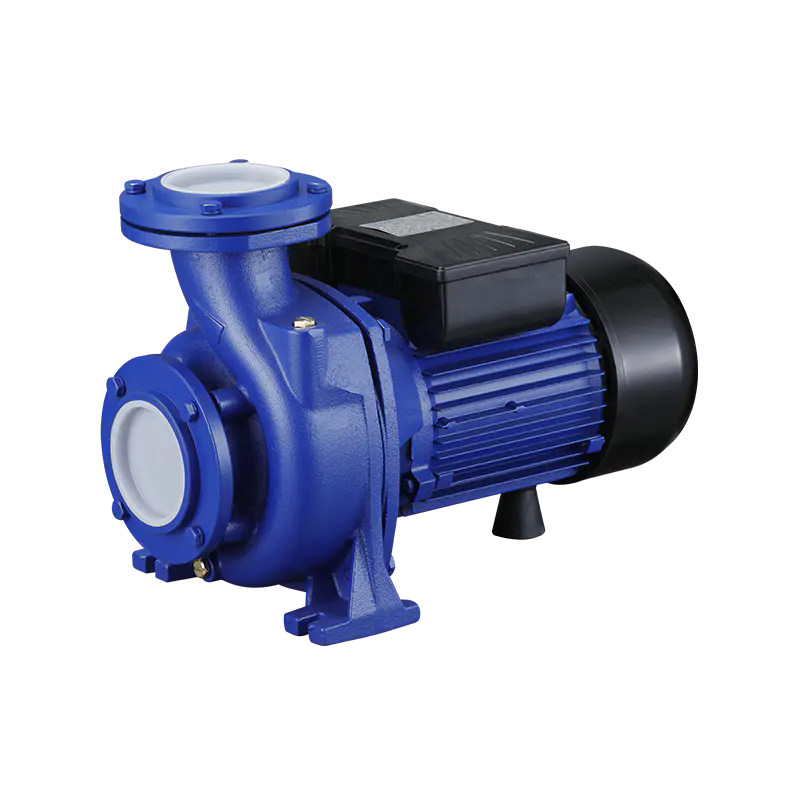Understanding Deep Well Submersible Pumps: Essential Insights for Industrial Applications
2025-07-26

At their core, deep well submersible pumps are composed of a motor, impellers, and a pump body, all designed to function underwater. Unlike traditional surface pumps, which rely on gravity to draw water up, submersible pumps are submerged in the water they are pumping. This design allows for efficient water removal from depths that would typically be inaccessible to surface pumps.
One of the primary advantages of deep well submersible pumps is their ability to handle high head applications, meaning they can push water to elevated locations effectively. They are capable of lifting water from significant depths, often exceeding 500 feet. This makes them particularly valuable in areas where water tables are low or in situations requiring water extraction from deep aquifers.
Additionally, deep well submersible pumps are known for their energy efficiency. Because they operate underwater, they do not experience the same suction losses as surface pumps, leading to reduced energy consumption over time. This efficiency can result in lower operating costs, an essential consideration for industrial operations that rely heavily on water resources.
When selecting a deep well submersible pump, it is crucial to consider factors such as flow rate, total dynamic head (TDH), and the specific characteristics of the water source. Different applications may require different pump sizes and configurations. For instance, agricultural applications might prioritize flow rate to ensure crops receive adequate irrigation, while municipal systems might focus on reliability and maintenance ease.
Regular maintenance is also vital for ensuring the longevity and efficiency of deep well submersible pumps. This includes routine inspections for wear and tear, monitoring water quality to prevent clogging, and ensuring that electrical components are functioning correctly. Implementing a proactive maintenance schedule can significantly reduce the risk of unexpected failures and prolong the pump's operational life.
In conclusion, deep well submersible pumps are indispensable tools in the industrial sector for efficient water extraction from deep sources. Understanding their operation, advantages, and maintenance needs can help industries optimize their use, leading to improved productivity and reduced operational costs. Whether for agricultural needs or municipal water supply, these pumps are engineered to meet the demands of various applications effectively.
Other blog
Top Benefits of Using Centrifugal Water Pumps for Efficient Fluid Management
Top Benefits of Using Centrifugal Water Pumps for Efficient Fluid Management Fluid management is a critical aspect of many industries, including agriculture, manufacturing, and chemical processing. Among the various types of pumps available, **centrifugal water pumps** stand out due to their efficiency, reliability, and versatility. This article delves into the top benefits of using centrifugal wa
Understanding the Critical Role of Centrifugal Water Pumps in Industrial Applications
Understanding the Critical Role of Centrifugal Water Pumps in Industrial Applications Table of Contents 1. Introduction to Centrifugal Water Pumps 2. How Centrifugal Water Pumps Work 3. Key Applications of Centrifugal Water Pumps in Industry 4. Advantages of Using Centrifugal Water Pumps 5. Different Types of Centrifugal Water Pumps 6. Maintenance Best Practices for Centrifugal Water
How to Choose the Right Stainless Steel Centrifugal Water Pump for Your Needs
How to Choose the Right Stainless Steel Centrifugal Water Pump for Your Needs Table of Contents 1. Understanding Stainless Steel Centrifugal Water Pumps 2. Key Applications of Stainless Steel Centrifugal Water Pumps 3. Factors to Consider When Choosing a Centrifugal Water Pump 3.1 Flow Rate Requirements 3.2 Head Pressure Considerations 3.3 Pump Material and Construction 3.4 Energy
Quick Links
Product

Social Media
Parent Company:TAIZHOU WERTO IMPORT AND EXPORT CO.,LTD Head Office:
ROOM06,5FLOOR,UNIT2,#3TIMES BUILDING.NO.115 JIULONG AVENUE WENLING ZHEJIANG CHINA
Factory:TAIZHOU WERTO MECHANICAL AND ELECTRICAL CO.,LTD
Address:No.20 Building,Zeguo Industrial Zone,Wenling,Zhejiang,China
COOKIES
Our website uses cookies and similar technologies to personalize the advertising shown to you and to help you get the best experience on our website. For more information, see our Privacy & Cookie Policy
COOKIES
Our website uses cookies and similar technologies to personalize the advertising shown to you and to help you get the best experience on our website. For more information, see our Privacy & Cookie Policy
These cookies are necessary for basic functions such as payment. Standard cookies cannot be turned off and do not store any of your information.
These cookies collect information, such as how many people are using our site or which pages are popular, to help us improve the customer experience. Turning these cookies off will mean we can't collect information to improve your experience.
These cookies enable the website to provide enhanced functionality and personalization. They may be set by us or by third-party providers whose services we have added to our pages. If you do not allow these cookies, some or all of these services may not function properly.
These cookies help us understand what you are interested in so that we can show you relevant advertising on other websites. Turning these cookies off will mean we are unable to show you any personalized advertising.





